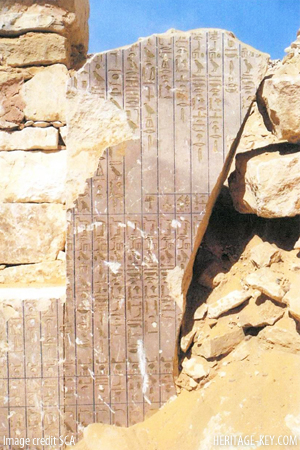 23-year-old Kate Harding from Ludlow, Shropshire last week became the first person prosecuted under the Treasure Act in Britain for not reporting the discovery of a significant historical artefact to the Coroner, reported the Mail Online.
23-year-old Kate Harding from Ludlow, Shropshire last week became the first person prosecuted under the Treasure Act in Britain for not reporting the discovery of a significant historical artefact to the Coroner, reported the Mail Online.
The offending find is a 700-year-old silver coin-like item called a piedfort, marking Charles IVs ascension to the French throne in 1322.
Thicker than normal coins from the period, piedforts are thought to have been used not as currency but as guides for mint workers or reckoning counters for officials therefore qualifying the object as potential Treasure under the Treasure Act 1996.
Only three other such items have ever been found in Britain.
A “Landmark Case”
The ruling has been hailed as a landmark case, and a warning to others who might flaunt the Treasure Act, such as nighthawkers metal detectorists who illegally locate and dig up artefacts by dark, and sell them on the black market.
On the face of things, it seems rather a harsh example to be making. Harding reportedly found the coin 14 years ago, while digging in her back garden in Tenbury Wells, Worcestershire with her mother. Hardings mother died not long after she claims to have made the chance discovery, and so she secretly held onto the piedfort as a keepsake, before finally showing it to an expert from Ludlow Museum in February last year.
Media reporting of the case has subsequently been quite sympathetic towards Harding, and accused her pursuers of heavy-handedness. But Ludlow Museum, the Coroner and the Crown Prosecution Service (CPS) maintain their responsibility to prosecute. For starters, Harding ignored numerous calls and letters from Ludlow Museum. When the CPS, on request from the Coroner, decided to investigate, Harding told police in an interview that she had lost the artefact. But it was later handed over to the Coroner during sentencing.
As for Hardings claim that she found the piedfort in her garden 14 years ago? A press release, circulated by the Portable Antiquities Scheme this week in an attempt to clarify some facts of the case, states: She originally told the Finds Liaison Officer that she found it recently (in the past 12 months i.e. during 2008) in her garden in Ludlow, Shropshire.
Sentencing
Hardings biggest mistake was disorganisation, claims her lawyer Brendan Reedy. That and missing out on what may have been a sizeable profit from the sale of the piece. The British Museum recently bought another piedfort found in West Clandon, Surrey in 2007 for 1,800.
Sentencing was proportionate, at least, to what was hardly the crime of a master artefact thief. Harding faced up to three months in jail or a fine, but was let away with a conditional discharge, and made to pay only 25 of 300 in court costs.
Treasure Act Earners
The Treasure Act which was instigated in 1996 to replace the medieval law of Treasure Trove legally obliges finders of objects defined as possible treasure to report the discovery to their local coroner within fourteen days for examination. Its a system thats been in the spotlight quite a lot recently, following such high-profile and lucrative discoveries as the Staffordshire Horde (valued at 3.3 million) and the Stirling Iron Age Gold Torcs (thought to be worth around 1 million), both of which have netted their respective finders very large sums of cash.
A quick glance at our Top 10 Metal Detector Discoveries blog reveals many more examples of finders playing be the rules of the Treasure Act and coming up trumps. The Vale of York Hoard a 1,000-year-old set of Viking jewels and coins unearthed by a father-son metal detecting team near Harrogate in 2007 was jointly bought by the British Museum and the Yorkshire Museum in August 2009 for a cool 1.1 million. Metal detectorist Cliff Bradshaw netted 270,000 for finding a precious gold Bronze Age cup, dating from 1700-1500 BC, in the Ringlemere Barrow in Kent in 2001. In 1992 the Hoxne Hoard a cache of 15,000 late 4th and early 5th century Roman silver and gold coins set treasure-hungry amateur Eric Lawes metal detector bleeping to the tune of 1.75 million.
With a precedent for prosecution of non-declaration of finds now set, its probably a good time to fess up and possibly even cash-in if youve got any ancient treasures hidden away in the attic.





